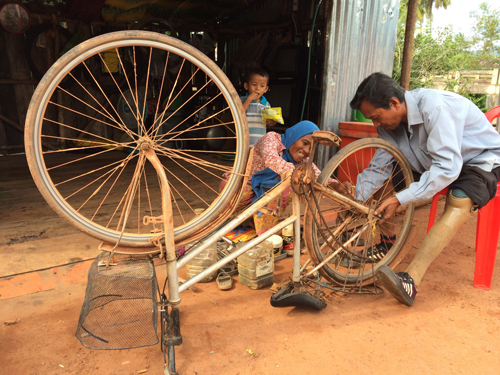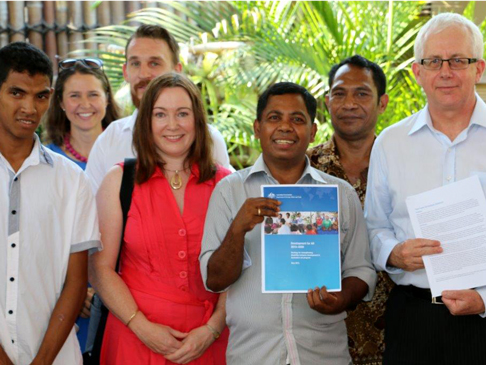On 3 December – International Day of Persons with Disabilities – the Department of Foreign Affairs and Trade, including its Embassies and High Commissions around the world, will promote an understanding of disability issues and mobilise support for the dignity, rights and well-being of people with disabilities.
People with disabilities make up the largest and most disadvantaged minority in the world (comprising 1 in 7 of the global population) and in developing countries they are over-represented amongst the persistently poor. For many, stigma, exclusion and discrimination present real barriers to full participation in community and economic life.
Australia is recognised internationally as a leader on disability because of our continuing commitment to including people with disabilities as participants and beneficiaries of our aid program, international advocacy and diplomatic efforts on the rights of people with disabilities.
Our commitment is clearly articulated in Development for All 2015-2020: Strategy for strengthening disability-inclusive development in Australia's aid program which was launched by the Hon Julie Bishop MP, Minister for Foreign Affairs, on 25 May 2015.
Australia will today join the Global Action on Disability Group (GLAD) as a founding member. GLAD will bring together government, national development agencies, multilateral organisations, the private sector and foundations to better coordinate their work on inclusion of people with disabilities in international development.
Australian Embassies and High Commissions around the world are hosting and attending events to mark International Day of Persons with Disabilities. The Department has also run a photo competition, won by the image of Mr Soh Lah – a beneficiary of the DFAT-funded Disability Rights Initiative Cambodia (DRIC) program, implemented by the United Nations Development Programme, UNIFEC and World Health Organisation (WHO) (see image).
Ensuring our aid investments include people with disability contributes to poverty reduction by boosting sustainable economic growth and creating better development outcomes for all.
More information
- Media release: Australia joins Global Action on Disability Group
- United Nations: International Day of Persons with Disabilities


